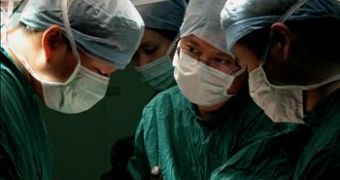A new UCLA study dealing with the safety of organ transplants abroad revealed concerning results. Two groups were involved in the research, one made up of people who went outside the United States for kidney transplants and the second containing people that underwent the complicated procedure and follow-up tests at the UCLA. After 16 months, statistics revealed much higher degrees of transplant-related infection in transplant "tourists" than in those who went at UCLA.
The researchers behind this survey say that these results have very much to do with the conditions in which tourists were operated on, cared for and transported to and from their respective places of surgery. The 33 people in the first group got their surgeries in China (44 percent), Iran (16 percent), and the Philippines (13 percent), and then returned to the U.S. and visited UCLA for follow-up tests. The American group consisted of 66 patients, who all underwent the procedures at UCLA hospitals.
The following tests revealed much higher percentages of infections among those who got their transplants elsewhere. Some developed infections and a person died from acute complications to the new kidney, presumably because the former owner of the organ was infected with Hepatitis B and didn't know it. Post-surgery complications also occurred more often and "tourists" required considerably more hours of hospitalization to be cured.
Also, most importantly, the rejection rates were much lower for those who got their transplants at UCLA, at only 12 percent, as opposed to 30 percent for those operated outside the country. Doctors blame these results on the precarious conditions that exist in many of the world's hospitals, where such complicated procedures are performed with but a minimum of the necessary medical conditions. The strain of keeping the immune system strong enough during this type of surgery is simply too great for some less-qualified doctors and anesthesiologists to handle.

 14 DAY TRIAL //
14 DAY TRIAL //